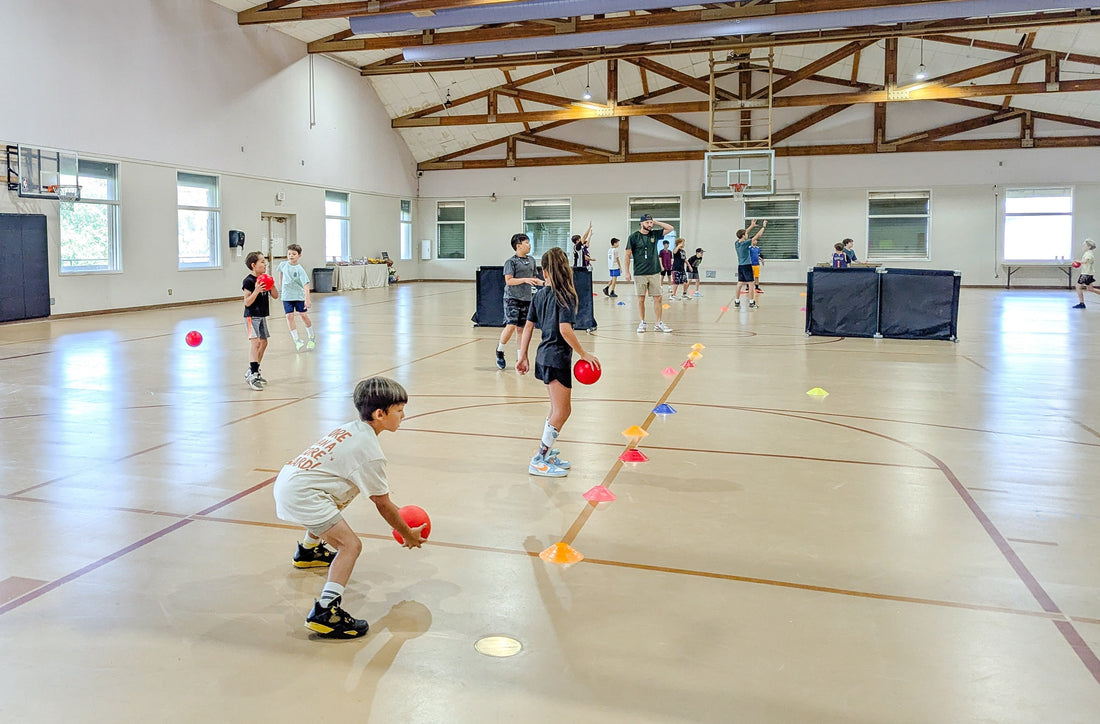
What Makes a Kid a Healthy Competitor?
Share
Our 7-year-old son loves sports more than just about anything.
He wakes up and shoots hoops in the living room before breakfast. He’ll spend a full day at camp, come home sweaty and tired—and still head out back to play soccer, golf, or whatever game he can make up. He plays with his whole heart.
And also?
He really struggles with losing.
When things don’t go his way, when he misses a shot or loses a game, the frustration boils over. He’ll sometimes cry, run away, or refuse to try again. And as his parents, we feel it too. We’ve had to remind ourselves that this is part of raising him—not just as an athlete, but as a whole person.
There’s no perfect bow to put on this story yet. We’re still in the middle of it.
But we’re trying to lead him with intention—not toward temporary relief or quick comfort, but toward becoming the kind of competitor we truly believe in:
One who is brave.
One who gets back up.
One who treats others with kindness, even when it’s hard.
One who finds joy in playing—not just in winning.
This is what we mean when we talk about raising healthy competitors.
So... what actually makes a competitor “healthy”?
It’s not just a kid who’s talented. Or one who doesn’t get emotional.
Here’s a few things I believe a healthy competitor is constantly learning to do:
1. Value Effort Over Outcome
The scoreboard doesn’t tell the whole story. Healthy competitors know that how they show up matters more than whether they win or lose. Are they trying? Growing? Learning? These are the wins that really count.
What this looks like at Kuyper Sports Camps:
We praise effort just as much as achievement. We cheer for kids when they try something new, encourage others, or bounce back after a hard moment.
2. Learn Emotional Resilience
Losing is hard. Mistakes happen. Healthy competitors feel those things—but they also learn how to process them and keep going.
For our son, this is where we are right now. Learning how to let him feel frustrated without shame, while helping him grow the muscle of trying again. It's not a quick fix—but it’s worth it.
At Kuyper Sports Camps:
We talk about what it means to lose well, and we create space for kids to practice self-regulation and teamwork in real time.
3. Show Respect and Kindness—Even Under Pressure
True competition doesn’t mean pushing others down. It means lifting your team up. Healthy competitors know how to honor the game, their teammates, and even their opponents.
4. Stay Curious and Keep Trying
Being “good” at something isn’t always the goal. Staying curious enough to learn, and brave enough to keep trying, is what keeps kids growing. And the by-product of that more times than not is that they do end up getting “good” at the thing they kept being curious enough about to learn.
Our son is learning this, slowly. And so are we as his parents.
We’re not trying to “fix” his feelings when he loses. We’re trying to help him grow through them—to build something deeper than just focusing on winning.
A Note for Parents in the Middle of It Too
Maybe you’re raising a kid who gets discouraged easily. Or one who’s too hard on themselves. Or one who’s just now discovering their love for sports.
Wherever you are, know this:
You don’t have to have all the answers.
You don’t have to rush your child past the messy middle.
Just keep showing up. Keep modeling character. Keep encouraging effort.
You’re doing the slow, meaningful work of raising a healthy competitor. And that work matters.
Want a Place for Your Child to Grow in This?
That’s exactly what we’ve created at Kuyper Sports Summer Camps—a space where kids can…
- Learn how to compete with heart
- Try new things without fear
-
Grow in kindness, resilience, and confidence
They’ll leave better athletes, yes—but more importantly, better humans.
It’s not too late to join in. Whether your child is already in love with sports or just beginning to explore them, there’s a place for them here.
More Posts You Might Enjoy Reading:
5 Ways to Help Your Child Build Confidence
